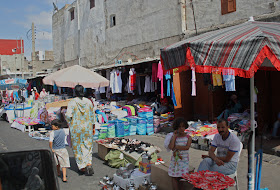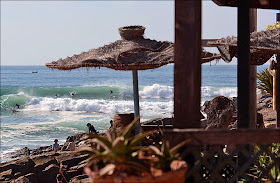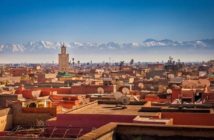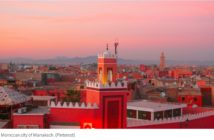 More empty tables than usual
More empty tables than usual
“We are getting only three or four bookings a week which is just enough to keep our head above water,’ one riad owner told The View from Fez. “Hopefully the lull since New year will see a pick-up in March and April.”
The situation in Fez is patchy, with some riad owners reporting good numbers of guests with a surprising number of visitors from South American nations such as Argentine, Mexico and Brazil. Those operators who concentrate on the North American and British markets are seemingly those experiencing the worst of the slowdown.
The decline in visitor numbers has caused a number of accommodation businesses to shift their focus and lower their rates to encourage domestic tourism. “As far as we’re concerned, we’ve revised our room rates and also diversified our offer to Moroccan families,” one Marrakech hotel manager explained. “We’ve also improved our internet communications, with a new platform providing information and online booking facilities.”
Last year, journalist Rajae El Oufairi was accurate in suggesting that focussing on national tourists, with attractive offers, would be a solution for the sector under current market conditions. “In Morocco today there is a real emergent middle class,and the problem is the absence of tourist offers to match the expectations of the Moroccan middle class.”
 A quiet time in the souqs of Casablanca photo Sandy McCutcheon
A quiet time in the souqs of Casablanca photo Sandy McCutcheon
However, at street level, traders say that business is quiet. Street restaurants and small business owners are generally confident that things will pick up. “It is always quiet in winter,’ hanout (small shop) owner Yousef says. “We don’t get a lot of business from tourists anyway. They tend to take pictures and move on. But when there are a lot of tourists the guest houses spend more in the souq.”
Writing in the online journal
Magharebia, Hassan Benmehdi reports that although Morocco is hoping 2013 will be a year of economic recovery for the tourism sector, experts are cautioning the rebound will not be as easy as once thought.
“Tourism in Morocco is crucial to the country’s economy, as it represents about 7.1% of the gross domestic product,” financial analyst Moussa El Mouritani explained. “The European market represents over 50% of the tourism in Morocco; however that market is still unstable and the economy is having a hard time getting back to its normal pace and normal progression.”
Moroccan Tourism Minister Lahcen Haddad has pointed out that efforts have been made on many levels to find ways to minimise the impact of the weak economy, particularly in Europe. Haddad said that the Moroccan government plans to develop and finalise pragmatic methods that would allow several projects to come to life. That would require raising a total of 38 billion dirhams for developing 36,000 additional beds and eventually lead to the creation of over 10,000 jobs.
 Tourism – one of the top five job generating sectors photo AFP/Fadel Senna
Tourism – one of the top five job generating sectors photo AFP/Fadel Senna
The point, Haddad said, was to invest with people involved in important projects such as the convention centre and the amusement park in Marrakech, the Tama Ouanza resort in Agadir as well as the myriad of resorts in Fez and the Biladi clubs in Martil and Benslimane.
Also on the 2013 agenda, the introduction of medical tourism and sustainable tourism classes.
Tour operators are dissatisfied and feel that the field “is not living up to expectations”. For Abdelali Mouktadir, who works in sales at a Marrakech hotel resort, the bad economy makes them less competitive. Another Marrakech hotel operator said that the government should focus efforts mainly in the aviation sector and should work harder on making Morocco a tourist destination. The country’s potential is not being correctly showcased, Casablanca restaurant manager Driss Belloufi said.
The National Tourism Federation (FNT) wants to reinforce logistics so that the country’s vision for domestic tourism gets some kind of support. The tourism minister also looks to further reinforce training through the establishment of several partnerships with various international institutes. He also asked field professionals to help out and determine their exact needs in terms of expertise and human resources.

 A quiet time in the souqs of Casablanca photo Sandy McCutcheon
A quiet time in the souqs of Casablanca photo Sandy McCutcheon Tourism – one of the top five job generating sectors photo AFP/Fadel Senna
Tourism – one of the top five job generating sectors photo AFP/Fadel Senna






